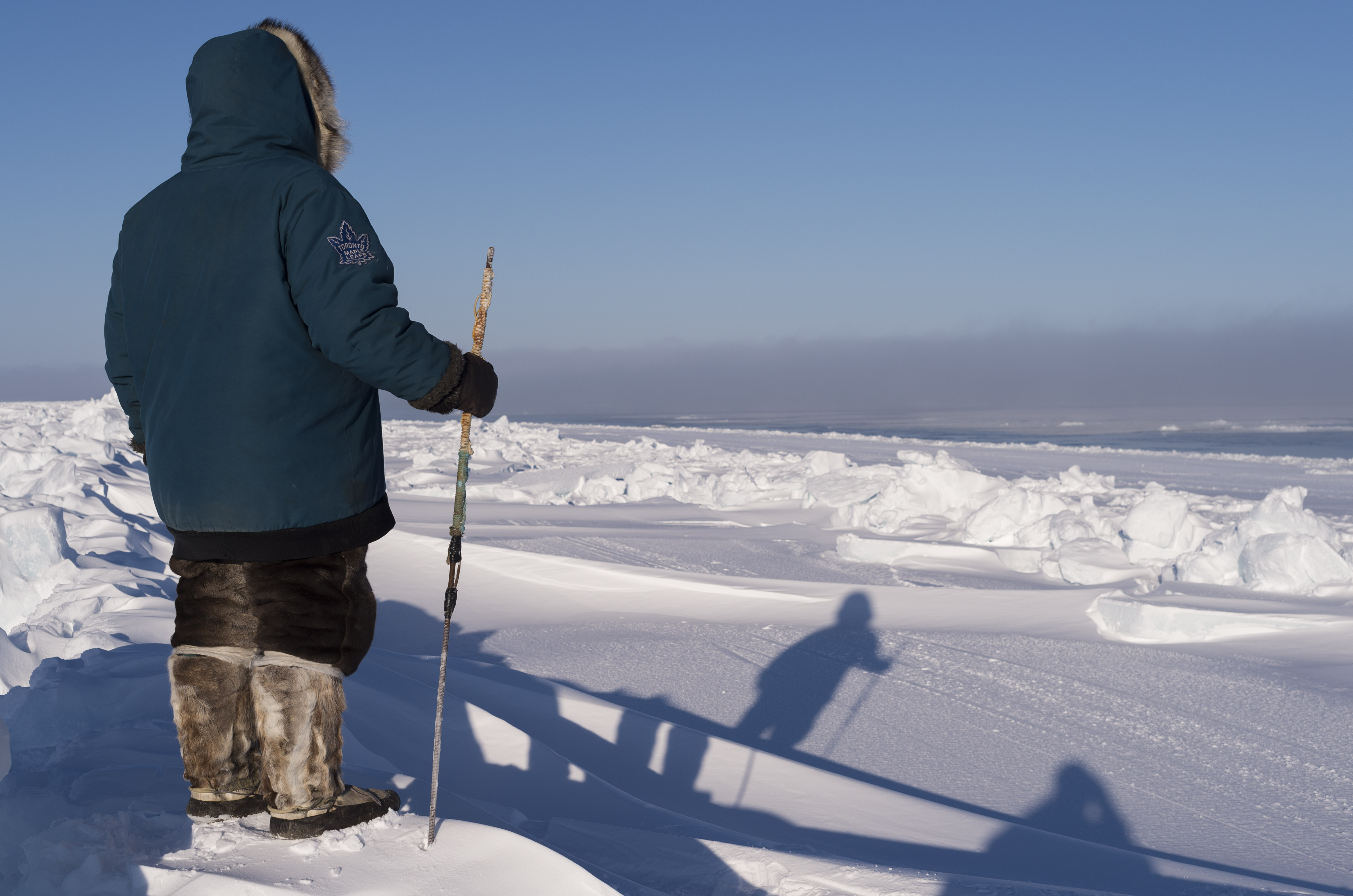
Enoki Irqittuq from 1 Canadian Ranger Patrol Group observes Foxe Basin near Hall Beach, Nunavut, during Operation Nunalivut in March 2017. [Sgt Jean-François Lauzé/Combat Camera]
Nearly 40 per cent of Canadian territory lies above the Arctic Circle, yet only about one per cent of the country’s population lives there. It is believed to harbour untold mineral and petroleum wealth, yet its riches are all but untapped.
We think of it as one of the last great bastions of pure nature left on Earth, so we question whether those resources should ever be exploited. Yet there is growing evidence that the once-pristine Arctic waters are becoming the world’s refuse bin.
Developments, both recent and evolving, have posed a threat to Canadians’ traditional views of the Arctic and their claim to it.
It is widely understood that American and Russian submarines routinely patrol beneath the Arctic ice in what we consider Canadian waters.
Indeed, since the USCGC Polar Sea raised the hackles of Canadians by navigating the Northwest Passage in 1985 without Canada’s permission, melting ice has opened the waterway to more and more exploration and commercial—even tourist—traffic.
Recent expeditions to find the lost ships of the 1845 Franklin expedition—billed as an exercise celebrating Canada’s history and heritage—employed the Russian icebreaker Akademik Sergey Vavilov, crewed by the Russian Academy of Sciences.
The ship was chartered and operated by British Columbia-based One Ocean Expeditions, which uses Russian-flagged ships to run its Arctic tours, because, in this case, there was no appropriate Canadian vessel licensed to carry the expedition sponsors.
Now the Russians have unveiled an impressive military base in Franz Josef Land, a chain of islands between the Barents and Kara seas north of Novaya Zemlya archipelago. The building can house 150 soldiers and stock 18 months’ worth of food and fuel. Russia’s northernmost installation, it also has air defence capabilities.
The Russians have three more bases in the works, as well as an air defence shield which Russia says will cover much of its northern coast.
Canada? Not so much.
Whether Canadians like it or not, the militarization of the Arctic is already well underway. And with eight nations—Canada, Denmark, Finland, Iceland, Norway, Russia, Sweden and the United States—having mounted overlapping and disputed Arctic sovereignty claims, it’s a matter of put up or shut up.
Conservative leadership hopeful Erin O’Toole recently called for a greater military commitment in the Arctic. He wants an enhanced Canadian Ranger program, an Arctic naval port and the return of reserve forces to Canada’s territories.
Canada's military ill-equipped to patrol #Arctic says #CPC leadership candidate @ErinOTooleMP in #Yukon "We need a better presence" #CDNpoli pic.twitter.com/gcnqrvh8UY
— Philippe Morin (@YukonPhilippe) May 12, 2017
O’Toole, a former air force officer, says the military needs more support, equipment and infrastructure to patrol the Arctic. “We need to be able to operate in our North,” he said during a visit to Whitehorse. “We need naval facilities; we need ground forces. At a time when the North is opening up…we need a better presence of Canada in the [Arctic].”
O’Toole said the Rangers, a force of 5,000 Inuit, First Nations, Métis and non-aboriginal volunteers, need help and should be given patrol drones. “You can do wildlife [and] environmental patrols using drones—flown, maintained and operated by Northerners. It’s a way we can exert sovereignty and engage young people, as an offshoot of the Canadian Rangers program.”
The U.S. Geological Survey estimates that 30 per cent of the world’s untapped gas reserves (108 trillion cubic feet), 13 per cent of its oil reserves (about 90 billion barrels) and $1 trillion in minerals lie in the Arctic region.
But the harsh climate and remote locations pose huge challenges to equipment and human resources. With increased traffic and accelerated exploration come more and greater threats to the environment, where protections are anything but consistent among the eight Arctic claimants.
Claims of sovereignty and gestures of national pride aside, the Arctic needs a guardian to ensure its well-being and Canada—given sufficient international support—is ideally suited to this role.
Advertisement



















